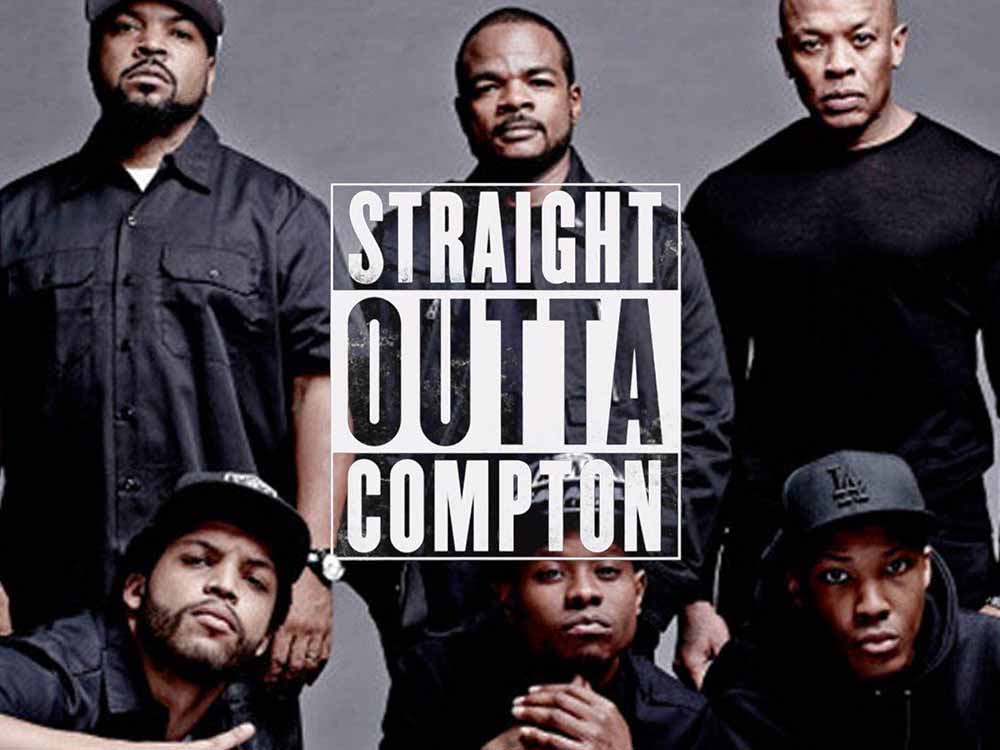Straight Outta Compton (2015): A N.W.A. Biopic That Rocked the World of Hip-Hop
In 2015, “Straight Outta Compton” burst onto the cinematic scene, chronicling the meteoric rise and cultural impact of the hip-hop group N.W.A. This article explores the film’s portrayal of the groundbreaking music group, the socio-political context of their music, the cast and performances, the controversies surrounding the group, and the enduring legacy of N.W.A.
The Birth of N.W.A. and Gangsta Rap
N.W.A., short for “Niggaz Wit Attitudes,” emerged from the streets of Compton, California, in the late 1980s. Comprised of Dr. Dre (played by Corey Hawkins), Ice Cube (played by O’Shea Jackson Jr., Cube’s real-life son), Eazy-E (played by Jason Mitchell), DJ Yella (played by Neil Brown Jr.), and MC Ren (played by Aldis Hodge), the group revolutionized hip-hop with their raw and unapologetic lyrics.
“Straight Outta Compton” traces the group’s formation, highlighting their early struggles, artistic ambitions, and their determination to tell the harsh realities of life in Compton through their music. Their debut album of the same name was a seminal moment in hip-hop, introducing the world to the genre of gangsta rap.
The Cast and Performances
The film received acclaim for its casting choices and the performances of the actors. O’Shea Jackson Jr.’s portrayal of his father, Ice Cube, was particularly noteworthy for its authenticity and charisma. Corey Hawkins captured the essence of Dr. Dre, while Jason Mitchell’s portrayal of Eazy-E evoked both sympathy and respect for the group’s fallen member.
The chemistry among the cast members mirrored the camaraderie of N.W.A., and their performances resonated with fans of the group and newcomers alike. The actors not only captured the spirit of the hip-hop pioneers but also delved into the personal struggles and conflicts within the group.
Controversy and Cultural Impact
N.W.A.’s music was provocative and unfiltered, addressing issues of police brutality, racial profiling, and socio-economic disparities in their lyrics. Their signature track, “F**k tha Police,” drew the ire of law enforcement agencies and led to significant controversy.
The film, like the group’s music, did not shy away from exploring the socio-political context of N.W.A.’s work. It depicted scenes of police harassment and confrontations with authorities, highlighting the group’s confrontational approach to addressing social issues. The controversies surrounding N.W.A. and their music sparked debates about the role of hip-hop in addressing systemic injustice.
The Enduring Legacy of N.W.A.
“Straight Outta Compton” showcased the enduring relevance of N.W.A.’s music and message. Despite the challenges and controversies they faced, the group’s impact on hip-hop and popular culture cannot be overstated. Their uncompromising lyrics and fearless approach to storytelling paved the way for subsequent generations of artists to address social and political issues in their music.
The film also shed light on the individual journeys of N.W.A. members, such as Dr. Dre’s transformation into a music mogul and the successful careers of Ice Cube in music and film. It emphasized the group’s legacy as not only pioneers in music but also as cultural influencers who reshaped the landscape of hip-hop.
In conclusion, “Straight Outta Compton” in 2015 was a powerful biopic that celebrated the rise of N.W.A. and their impact on the world of hip-hop. The film’s portrayal of the group, their socio-political context, performances, controversies, and enduring legacy made it a significant contribution to the genre of music biopics.











